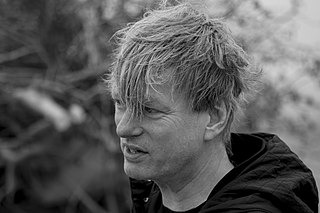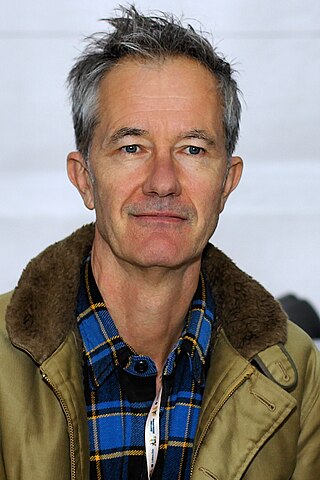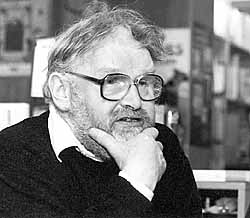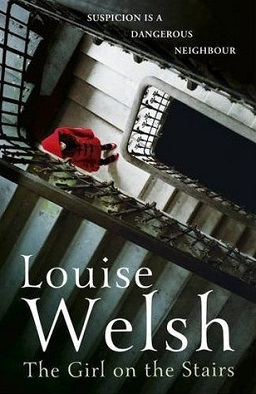
Irvine Welsh is a Scottish novelist and short story writer. His 1993 novel Trainspotting was made into a film of the same name. He has also written plays and screenplays, and directed several short films.

Robert Carlyle is a Scottish actor. His film work includes Trainspotting (1996), The Full Monty (1997), The World Is Not Enough (1999), There's Only One Jimmy Grimble (2000), The 51st State (2001), Eragon (2006), and The Legend of Barney Thomson (2015). He has been in the television shows Hamish Macbeth, Stargate Universe, Once Upon a Time and COBRA. He won the BAFTA Award for Best Actor in a Leading Role for The Full Monty and a Gemini Award for Stargate Universe, and was nominated for an Emmy Award for his work in the miniseries Human Trafficking (2005).

Alison Louise Kennedy is a Scots writer, academic and stand-up comedian. She writes novels, short stories and non-fiction, and is known for her dark tone and her blending of realism and fantasy. She contributes columns and reviews to European newspapers.

William Angus McIlvanney was a Scottish novelist, short story writer, and poet. He was known as Gus by friends and acquaintances. McIlvanney was a champion of gritty yet poetic literature; his works Laidlaw, The Papers of Tony Veitch, and Walking Wounded are all known for their portrayal of Glasgow in the 1970s. He is regarded as "the father of Tartan Noir" and as Scotland's Camus.

Michel Faber is a Dutch-born writer of English-language fiction, including his 2002 novel The Crimson Petal and the White, and Under the Skin (2000) which was adapted for film by Jonathan Glazer, starring Scarlett Johansson. His novel for young adults, D: A Tale of Two Worlds, was published in 2020. His book, Listen: On Music, Sound and Us, a non-fiction work about music, came out in October 2023.

James Kelman is a Scottish novelist, short story writer, playwright and essayist. His fiction and short stories feature accounts of internal mental processes of usually, but not exclusively, working class narrators and their labyrinthine struggles with authority or social interactions, mostly set in his home city of Glasgow. Frequently employing stream of consciousness experimentation, Kelman's stories typically feature "an atmosphere of gnarling paranoia, imprisoned minimalism, the boredom of survival.".

Andrew O'Hagan is a Scottish novelist and non-fiction author. Three of his novels have been nominated for the Booker Prize and he has won several awards, including the Los Angeles Times Book Prize.

Geoff Dyer is an English author. He has written a number of novels and non-fiction books, some of which have won literary awards.

Kathleen Jamie FRSL is a Scottish poet and essayist. In 2021 she became Scotland's fourth Makar.

Louise Welsh is an English-born author of short stories and psychological thrillers, resident in Glasgow, Scotland. She has also written three plays, an opera, edited volumes of prose and poetry, and contributed to journals and anthologies. In 2004, she received the Corine Literature Prize.
Canongate Books is an independent publishing firm based in Edinburgh, Scotland.
Andrew Greig is a Scottish writer. He was born in Bannockburn, near Stirling, and grew up in Anstruther, Fife. He studied philosophy at the University of Edinburgh and is a former Glasgow University Writing Fellow and Scottish Arts Council Scottish/Canadian Exchange Fellow. He lives in Orkney and Edinburgh and is married to author Lesley Glaister.

Zoë Strachan is a Scottish novelist and journalist. She also teaches creative writing at the University of Glasgow.
Dilys Rose is a Scottish fiction writer and poet. Born in 1954 in Glasgow, Rose studied at Edinburgh University, where she taught creative writing from 2002 until 2017. She was Director of the MSc in Creative Writing by Online Learning from 2012 to 2017. She is currently a Royal Literary Fellow at the University of Glasgow. Her third novel Unspeakable was published by Freight Books in 2017.
Scotland's National Book Awards, formerly known as the Saltire Society Literary Awards, are made annually by the Saltire Society. First awarded in 1937, they are awarded for books by Scottish authors or about Scotland, and are awarded in several categories.

Alasdair James Gray was a Scottish writer and artist. His first novel, Lanark (1981), is seen as a landmark of Scottish fiction. He published novels, short stories, plays, poetry and translations, and wrote on politics and the history of English and Scots literature. His works of fiction combine realism, fantasy, and science fiction with the use of his own typography and illustrations, and won several awards.

The Girl on the Stairs is the 5th psychological crime thriller by Scottish author Louise Welsh. The book was first published in 2012 by publisher John Murray. Welsh's first novel, The Cutting Room, won several literary prizes.
Chris Dolan is a Scottish novelist, poet, and playwright. He is married to Moira Dolan and they currently live in Glasgow with their children. He is a lecturer in English Literature at Glasgow Caledonian University and is Programme Leader of the master's degree programme in Television Screenwriting there.

Aileen Christianson was Senior Lecturer in the Department of English Literature at the University of Edinburgh. She was well known as a scholar of Scottish literature and women's writing, and as senior editor of 'The Collected Letters of Thomas and Jane Welsh Carlyle' and of collections of Scottish women's writing. Her experience over decades made her a recognised authority on both Carlyles. She gained an MA (hons.) in English and History from the University of Aberdeen in 1966.
Isobel Murray is a Scottish literary scholar, Emeritus Professor at the University of Aberdeen. She edited the work of Oscar Wilde and Naomi Mitchison. She also edited a series of interviews which she and her husband Bob Tait carried out with Scottish writers, and wrote a biography of the writer Jessie Kesson.














